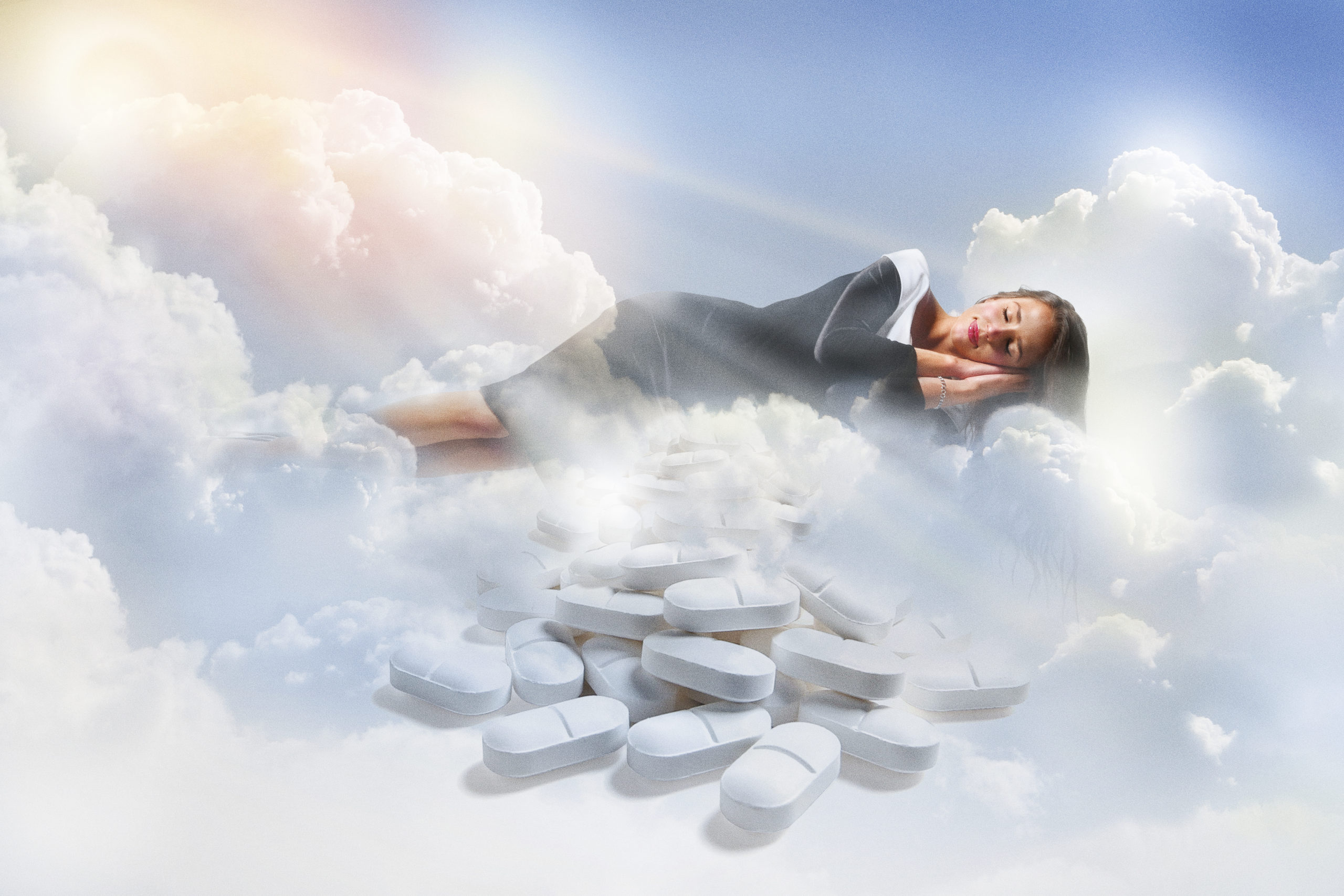
Who has time to sleep much these days!? I will get plenty of sleep when I’m dead, right? When you’re grinding and multi-tasking to address the endless responsibilities of your day, sacrificing some sleep may seem like your only option. The fact is that sleep is as relevant for optimal health and wellness as exercise and healthy food choices. Even minimal sleep deprivation can throw off your mood, drain your energy levels, and make your day that much more stressful.
Sleep is imperative for concentration, learning, short-term and long-term memory, body maintenance and repair, rejuvenation, neural detoxification, mood stability, immunity, and basically all cell function.
Did you know that people who get from 7 to 9 hours of sleep a night, which is recommended by the National Sleep Foundation, are MUCH more likely to have higher productivity, better attention spans, feel more energetic throughout the day, experience less inflammation and debilitating stress, maintain healthier body weights, and live longer lives?
Over the years many cumulative factors can surmount, robbing you of a much-needed restful night’s sleep. Some of these include:
- Very little physical activity
- Poor dietary choices,
- Less time spent in the sun
- Digestive issues
- Hormone imbalances
- Chronic perceived stress
- Spending time on computer right before bed or falling asleep with TV on
- Late night meals
- Sleep disrupting medications
- Sleeping with a heavy snorer
- Caring for a chronically ill spouse or parent
- Chronic conditions like arthritis, fibromyalgia, sleep apnea, insomnia, anxiety, diabetes, acid reflux and the list goes on and on.
What if I just have a few cocktails or a sleeping pill to help me fall asleep?
Besides not being the healthiest choice on a regular basis, alcohol may help you fall asleep faster, but not for any length of time. Most times you just wake up in the middle of the night and can’t fall back asleep, like I’m sure many of you have experienced.
Sleep issues are certainly not uncommon. In fact, more than 70 million Americans suffer from the persistent inability to fall and/or remain asleep. It can be extremely frustrating to lie awake in bed, tossing, turning, staring at the ceiling and rehashing the events of stressful days.
In desperation, many turn to over the counter or prescription sleep medications that have the strong potential of becoming habit forming, leaving you feeling trapped and dependent. Upon waking, you are left with a less active brain from a “pill hangover,” and lack the desire to get out of bed. Now you’re feeling extra sluggish, and physical and mental functioning may continue to impair you throughout the day, meaning more adrenal taxing caffeine. Not a great way to start the day or be super productive, is it?
Besides feeling lethargic the next day, there are many more serious reasons to avoid sleeping medications. ALL prescription sleeping pills have side effects of some kind, which can vary depending on the drug, the dosage, the span of use, and the length of time it remains in the system.
DID YOU KNOW: recovering sleeping pill addicts will suffer from “rebound insomnia,” which can be even worse then prior to started the drug!
Common side effects include headaches, muscle aches, constipation, dry mouth, altered gut flora, daytime sleepiness, trouble concentrating, lowered immunity, lowered libido and/or inability to perform at all (ouch!), dizziness, unsteadiness, ADDICTION, and rebound insomnia.
Some more serious side effects include severe allergic reactions, facial swelling, memory lapses, hallucinations, suicidal thoughts or actions, and complex sleep-related behaviors like sleep-walking, sleep-driving (driving while not fully awake, with no memory of the event), sleep-eating (eating in the middle of the night with no recollection, often resulting in weight-gain) and worse yet PREMATURE DEATH!
DID YOU KNOW: 11,537 drug overdose deaths were caused by benzodiazepines in 2017!
Dr. Daniel Kripke, M.D., physician, researcher and founder of one of the first sleep clinics in the US, wrote “The Dark Side of Sleeping Pills.” In it, he explains that taking sleeping pills not only makes you more likely to die prematurely, but more likely to get cancer as well! In his study, he matched 10,000 plus patients who took sleeping pills with 20,000 plus patients who did not take sleeping pills.
This is what Dr. Kripke found:
- Patients who took sleeping pills died 4.6 times as often during follow-ups, averaging 2.5 years.
- Those who took higher doses (averaging over 132 pills per year) died 5.3 times as often.
- Even those patients who took fewer than 18 pills per year had significantly elevated mortality rates, 3.6 times that of patients who took no hypnotics.
- Those who averaged over 132 sleeping pills per year were 35% more likely to develop a new cancer.
Dr. Kripke concludes therefore that the use of sleeping pills is responsible for premature death:
We went to great pains and effort to match the patients taking sleeping pills with those not taking sleeping pills for age, sex, smoking history, and various measures of poor health, so it seemed to be a fair comparison … Theoretically, there could be confounding factors or biases in the selection of patients which caused these deaths without involving sleeping pills. We can only say that we found almost no evidence of such biases. … If sleeping pills cause even a small portion of the excess deaths and cancers associated with their use, they are too dangerous to use!
https://www.addictioncenter.com/sleeping-pills/
https://www.medicalnewstoday.com/articles/242211.php#3
https://www.drugabuse.gov/related-topics/trends-statistics/overdose-death-rates
